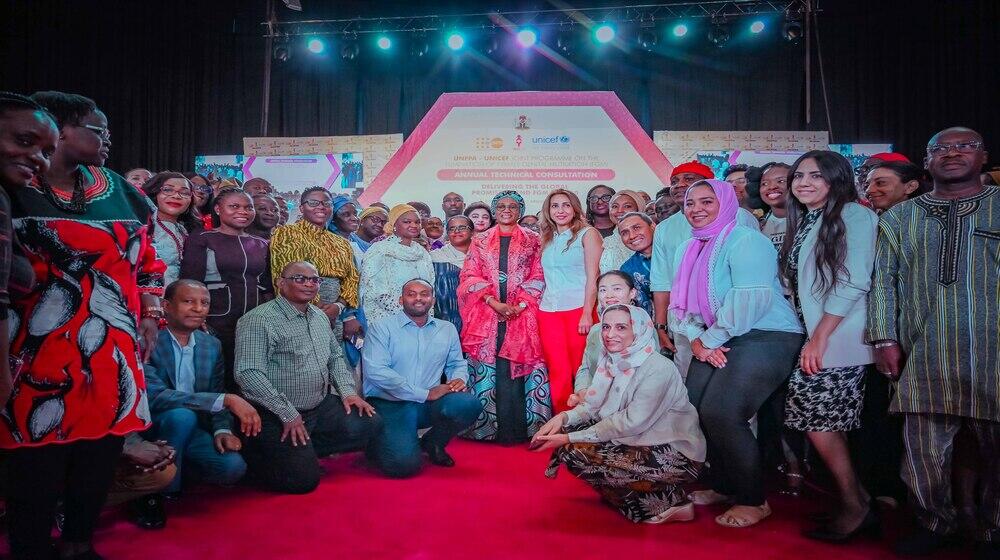Nigeria, home to the world's third-largest population of women and girls affected by Female Genital Mutilation (FGM), is set to host the 13th Annual Technical Consultation of the UNFPA-UNICEF Joint Programme on the Elimination of FGM. This event will convene experts from over 24 countries to strategize on ending this harmful practice by 2030. With an estimated 19.9 million Nigerian women and girls having undergone FGM, the nation faces a significant challenge in eradicating this deeply rooted tradition. The practice not only violates human rights but also poses serious health risks, including complications during childbirth and psychological trauma.
The Technical Consultation comes at a crucial time, as Nigeria grapples with the added complexity of addressing FGM in conflict-affected regions. Along with two other countries in the Joint Programme, Nigeria accounts for a disproportionately high number of affected girls and women in such areas. The importance of holding this annual consultation is further underscored by recent developments and setbacks in the region, such as the attempted repeal of the FGM ban law in The Gambia. These events highlight the ongoing challenges and the need for continued vigilance and collaboration in the movement to end FGM.
In a powerful show of commitment, the First Lady of Nigeria Oluremi Tinubu attended the opening ceremony and pledged her support for the nationwide effort to end FGM. Her advocacy is expected to galvanize action and raise awareness across the country.
"Change begins with each of us. Our actions, no matter how small, have the potential to create ripple effects of transformation in our communities, towards a future free from female genital mutilation," stated the First Lady. The Joint Programme, which operates in 17 countries, including Nigeria, aims to accelerate progress towards the elimination of FGM by 2030. The Technical Consultation will serve as a platform for knowledge exchange, collaboration, and the development of innovative approaches to address the issue.
About the UNFPA-UNICEF Joint Programme on the Elimination of FGM:
Since 2008, the UNFPA-UNICEF Joint Programme has been the largest global initiative dedicated to ending FGM. The program supports comprehensive interventions in 17 countries and influences global efforts through knowledge sharing and advocacy. It is currently in its fourth phase (2022-2030), striving to realize a world where every girl and woman has a voice, choice, and agency. In Nigeria, since 2014, the United Nations Population Fund (UNFPA) and the United Nations Children’s Fund (UNICEF), in partnership with the Federal Ministries of Women Affairs and Health, have been leading the largest global programme on eliminating Female Genital Mutilation (UNFPA-UNICEF Joint Programme on the Elimination of Female Genital Mutilation: Delivering the Global Promise).
In Nigeria as well as globally, the Joint Programme supports the development of enabling policies and legal frameworks, access to essential services, girls' and women’s empowerment, and community-led social and gender norms change by working in partnership with governments, civil society, development partners, and communities - in line with the 2030 Agenda of Sustainable Development in five priority states in Oyo, Osun, Ekiti, Imo and Ebonyi. With additional plans to scale up the programme to other states where the prevalence of FGM is on the rise, among girls aged 0-14.
For media enquiries, please contact:
Adewole Ajao, Communication Analyst, ajao@unfpa.org, +234 901 555 1296, Ijeoma Onuoha-Ogwe, Communication Officer, ionuohaogwe@unicef.org +234 803 535 1254


